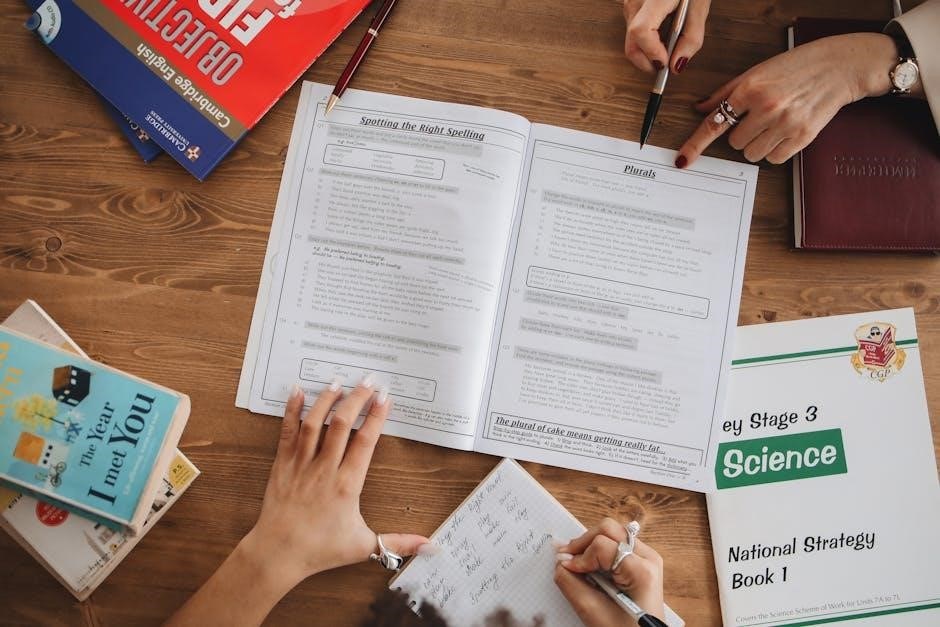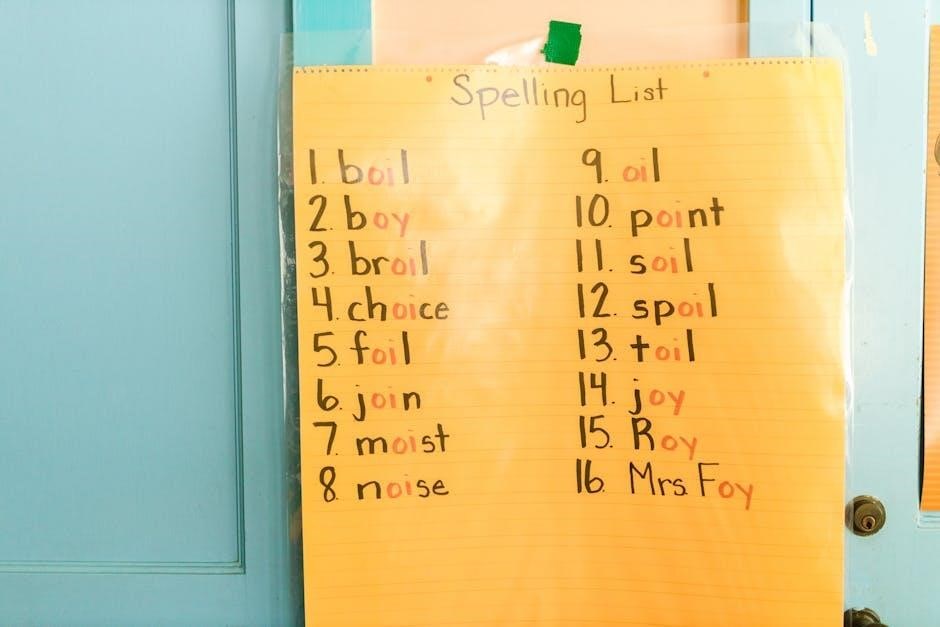This guide provides essential resources and strategies to help students prepare for the Civics Literacy Exam, ensuring a comprehensive understanding of civic responsibilities and rights.

Understanding the Civics Literacy Exam
The Civics Literacy Exam assesses knowledge of civic principles, rights, and responsibilities, requiring students to demonstrate competency in key historical and governmental concepts.
2.1 Overview of the Exam Format
The Civics Literacy Exam is a multiple-choice assessment designed to evaluate a student’s understanding of fundamental civic concepts. The exam typically consists of questions drawn from a predefined curriculum, covering topics such as the structure of the U.S. government, key historical documents, and civil rights. The format may also include true/false and fill-in-the-blank questions to test comprehension and memorization. The exam is usually administered in person, and students are allocated a specific time frame to complete it. Understanding the format is crucial for effective preparation, as it allows candidates to familiarize themselves with the question types and time management strategies. This section provides a detailed breakdown of what to expect, ensuring a smooth and confident exam experience.
2.2 Key Topics Covered in the Exam
The Civics Literacy Exam focuses on foundational topics essential for understanding civic responsibility and governance. Key areas include the structure of the U.S. government, such as the three branches and their functions, as well as key historical documents like the Constitution and the Bill of Rights. Civil rights and liberties, including amendments that guarantee freedoms, are also emphasized. Additionally, the exam covers the responsibilities of citizenship, such as jury duty, voting, and community engagement. These topics are designed to ensure a comprehensive understanding of civic literacy, preparing individuals to actively participate in democratic processes. Mastery of these areas is crucial for success on the exam.
2.3 Eligibility Criteria for Taking the Exam
The Florida Civic Literacy Exam (FCLE) is required for degree-seeking students entering Florida institutions beginning in Fall 2024 and thereafter. Eligibility applies to students pursuing Associate of Arts (AA), Associate of Science (AS), or baccalaureate degrees in catalog 2021-22 or later. Students must pass the FCLE prior to graduation, demonstrating competency in civic literacy. The exam is administered in person at designated testing centers, with specific schedules and availability details provided closer to the test dates; Eligibility is determined by the student’s academic standing and degree requirements, ensuring all qualifying students meet the civic literacy standards set by the state of Florida. Preparation is key, as thousands of students have successfully passed the exam.
2.4 Importance of Passing the Exam
Passing the Florida Civic Literacy Exam (FCLE) is crucial for students to demonstrate their understanding of civic rights, responsibilities, and historical documents. It ensures they are prepared to engage actively in civic life. The exam assesses knowledge of U.S. government structure, civil rights, and civic duties, aligning with state educational standards. Successful completion is a graduation requirement for degree-seeking students, reflecting the importance of civic literacy in fostering informed citizenship. By passing, students meet state mandates and gain essential skills for lifelong civic engagement. The exam serves as a foundational step in developing well-informed citizens capable of contributing to society effectively.

Civics Literacy Exam Study Materials
This section provides recommended textbooks, online resources, and practice exams to help students effectively prepare for the Civics Literacy Exam, ensuring comprehensive and well-rounded study.
3.1 Recommended Textbooks and Study Guides
Several textbooks and study guides are highly recommended for preparing for the Civics Literacy Exam. Titles such as We the People and iCivics: Citizenship and Government provide comprehensive overviews of U.S. government structure, historical documents, and civil rights. These resources include engaging content, practice questions, and review exercises to reinforce key concepts. Additionally, study guides like Civics and Economics offer focused chapters on citizenship responsibilities and civic engagement. These materials align closely with the exam curriculum, making them invaluable for targeted study. Utilizing these textbooks and guides can significantly enhance understanding and retention of essential civics literacy topics.
3.2 Online Resources for Exam Preparation
Online resources play a crucial role in preparing for the Civics Literacy Exam. Websites like Khan Academy and iCivics.org offer free interactive lessons and practice exercises tailored to civic education. Platforms such as Duolingo provide engaging civic education modules to enhance understanding. Additionally, the University of Phoenix offers a detailed guide on search strategies, emphasizing the use of Boolean operators and keyword identification; These resources not only supplement traditional study materials but also provide flexible learning opportunities. Leveraging these tools can help students efficiently navigate their exam preparation and achieve a deeper understanding of key concepts.
3.3 Practice Exams and Past Papers
Practice exams and past papers are invaluable tools for preparing for the Civics Literacy Exam. They provide students with hands-on experience of the exam format, question types, and time constraints. Official practice exams, such as those provided by the Florida Civic Literacy Exam (FCLE) website, offer authentic questions that mirror the actual test. Past papers from previous years can help students identify recurring themes and assess their knowledge gaps. Utilizing these resources allows students to refine their test-taking strategies, improve time management, and build confidence. Additionally, reviewing explanations for correct and incorrect answers enhances understanding and reduces exam-day anxiety. Regular practice with these materials is essential for achieving success.

Effective Study Strategies for the Exam
Develop a structured study plan, use active learning techniques, and incorporate memorization tools like flashcards to master civics literacy concepts efficiently.
4.1 Creating a Study Schedule
A well-structured study schedule is crucial for effective preparation. Start by identifying key topics and allocating specific time slots for each. Break down your study material into manageable chunks, focusing on one topic at a time to ensure deep understanding. Set realistic milestones and deadlines to track your progress. Incorporate regular review sessions to reinforce previously learned concepts. Utilize digital calendars or planners to stay organized and accountable. Allow time for practice exams and self-assessment to identify weak areas. Consistency is key—dedicate a specific number of hours daily to studying. Finally, include breaks to avoid burnout and maintain productivity. A balanced schedule ensures comprehensive preparation and reduces exam anxiety.
4.2 Active Learning Techniques
Active learning involves engaging with material through interactive methods, enhancing retention and understanding. Techniques include participating in group discussions, solving practice problems, and creating concept maps. Engage in debates or role-playing activities to apply civic concepts to real-world scenarios. Use flashcards to actively recall key terms and concepts. Teach the material to others to reinforce your own knowledge. Incorporate hands-on activities, such as analyzing historical documents or simulating governmental processes. Regularly test yourself with practice exams to identify areas needing improvement. These methods promote critical thinking and ensure active participation, making study sessions more effective and enjoyable. Consistent use of these techniques fosters a deeper grasp of civics literacy.
4.3 Using Flashcards for Memorization
Flashcards are a powerful tool for memorizing key terms, definitions, and concepts essential for the Civics Literacy Exam. Create flashcards with a term or question on one side and the answer or explanation on the other. Focus on critical areas like government structures, historical documents, and civil rights. Use different colors or symbols to highlight important details. Quiz yourself regularly, testing your ability to recall information without looking at the answers. Spaced repetition, where you review cards at increasing intervals, enhances long-term retention. Digital apps like Anki or Quizlet offer convenient ways to organize and review flashcards. Active recall strengthens memory and ensures mastery of civic literacy concepts.

Understanding the Exam Questions
Understand exam questions by identifying key terms, skimming for main ideas, and applying strategies for multiple-choice, true/false, essays, and fill-in-the-blank questions to ensure accurate responses.
5.1 Multiple-Choice Question Strategies
Mastering multiple-choice questions requires a strategic approach. Start by carefully reading each question and identifying key terms to understand the context. Eliminate obviously incorrect answers to narrow down choices. Use the process of elimination to increase the likelihood of selecting the correct answer. Pay attention to absolutes like “always” or “never,” as these are often incorrect. Skim questions for main ideas and use context clues to infer answers when uncertain. Practice active reading and note-taking to build familiarity with common themes. Time management is crucial—allocate a set amount of time per question to avoid rushing. Review best practices for guessing strategies and maintain confidence in your answers to ensure accuracy and composure during the exam.
5.2 Essay Question Tips and Tricks
Approaching essay questions effectively requires a clear strategy; Begin by thoroughly understanding the question and ensuring your response directly addresses all parts of the prompt. Organize your thoughts with a brief outline before writing, focusing on key points and supporting evidence. Use specific examples and definitions to demonstrate your knowledge. Practice writing concise, well-structured essays under timed conditions to improve clarity and coherence. Review your work to ensure it aligns with the question and meets the grading criteria. Utilize study materials to familiarize yourself with common essay topics and develop strong argumentation skills. Time management is key—allocate specific time for planning, writing, and revising your response to maximize your score.
5.3 True/False and Fill-in-the-Blank Techniques
Mastering True/False and Fill-in-the-Blank questions requires careful reading and strategic thinking. For True/False questions, read each statement thoroughly and identify key terms that may indicate the correct answer. Eliminate obviously incorrect options and make educated guesses when uncertain. For Fill-in-the-Blank questions, focus on understanding the context and recognizing keywords from your study materials. Practice active recall by attempting to fill in the blanks without looking at answers. Review past papers to familiarize yourself with common question formats and content. Allocate time during the exam to double-check your answers, ensuring accuracy and completeness. These techniques will enhance your performance in these question types.

Civics Literacy Exam Topics in Depth
This section delves into the core topics of the civics literacy exam, including the structure of the U.S. government, key historical documents, civil rights and liberties, and the responsibilities of citizenship.
6.1 Structure of the U.S. Government
The U.S. government is divided into three branches: legislative, executive, and judicial. The legislative branch, composed of Congress (Senate and House of Representatives), creates laws. The executive branch, led by the President, enforces laws; The judicial branch, headed by the Supreme Court, interprets laws. This separation ensures a system of checks and balances, preventing any one branch from dominating. Additionally, the federal system divides power between the national government and states, with reserved powers for states and concurrent powers shared between both levels. Understanding this structure is critical for grasping civic literacy, as it forms the foundation of U.S. governance and ensures accountability.
6.2 Key Historical Documents
Key historical documents, such as the Declaration of Independence, the U.S. Constitution, and the Bill of Rights, are foundational to understanding civic literacy. The Declaration of Independence (1776) established the principles of liberty and equality. The Constitution (1787) outlined the framework of the federal government and the relationship between citizens and the state. The Bill of Rights (1791) guaranteed essential freedoms such as speech, religion, and due process. Other significant documents, like the Emancipation Proclamation and the Civil Rights Act, have shaped the nation’s progress toward equality. These documents are crucial for understanding the evolution of civic responsibilities and the rights of U.S. citizens.
6.3 Civil Rights and Liberties
Civil rights and liberties are fundamental principles in U.S. governance, ensuring equal protection and freedoms for all citizens. The 13th, 14th, and 15th Amendments abolished slavery, established citizenship, and protected voting rights, respectively. The Bill of Rights guarantees freedoms such as speech, religion, and due process. Landmark legislation like the Civil Rights Act of 1964 and the Americans with Disabilities Act further expanded protections against discrimination. Understanding these rights and their historical development is crucial for civic literacy, as they shape individual freedoms and societal equality. These principles are essential for fostering justice and ensuring all citizens can participate fully in society.
6.4 Responsibilities of Citizenship
Understanding the responsibilities of citizenship is vital for civic literacy. Citizens are expected to actively participate in maintaining democracy, including voting in elections, jury duty, and obeying laws. Paying taxes, respecting the rights of others, and engaging in community service are also key duties. Civic engagement fosters accountability and ensures the well-being of society. These responsibilities promote unity and uphold the principles of justice and equality. By fulfilling these obligations, citizens contribute to the stability and prosperity of their communities and the nation as a whole. This section explores the essential roles citizens play in maintaining a functional democracy.

Information Literacy and Digital Search Skills
Mastering information literacy and digital search skills is crucial for effective research. Identify keywords, use Boolean operators, and evaluate sources for credibility to refine your search results efficiently.
7.1 Identifying Keywords for Effective Searching
Identifying keywords is a fundamental step in effective searching. Start by breaking down your research topic into main concepts. For example, if studying civic literacy, focus on terms like “civic education,” “government structure,” or “civil rights.” Avoid broad terms and eliminate unnecessary words like “the” or “of.” Use Boolean operators (AND, OR, NOT) to refine your search. For instance, searching “civic education AND government” narrows results to relevant topics. Additionally, employ quotes for exact phrases, such as “civic literacy exam,” and use asterisks to truncate words (e.g., “civic*” for “civic” or “civil”). Always evaluate sources for credibility and relevance to ensure accurate information.
7.2 Using Boolean Operators in Research
Boolean operators are essential tools for refining your research and ensuring precise results. The AND operator combines terms, requiring both to appear in results (e.g., “civic education AND government”). The OR operator broadens searches by including alternatives (e.g., “civil rights OR liberties”). The NOT operator excludes irrelevant terms (e.g., “court NOT tennis”). Advanced techniques include using quotes for exact phrases (e.g., “civic literacy exam”) and truncation with an asterisk to capture word variations (e.g., “civic*”). Mastering these operators helps you efficiently locate relevant information, saving time and enhancing the quality of your research. Practice these strategies to refine your search skills and find credible sources for your civics literacy exam preparation.
7.3 Evaluating Sources for Credibility
Evaluating sources for credibility is crucial to ensure the accuracy and reliability of information used in civics literacy exam preparation. Begin by assessing the author’s qualifications and expertise in the subject matter. Check if the publisher is reputable and well-established. Verify the publication date to ensure the information is up-to-date, especially for rapidly changing topics like government policies or civil rights. Examine the purpose of the source—does it aim to inform, persuade, or sell? Be cautious of bias or unsupported claims. Look for peer-reviewed articles or sources endorsed by educational institutions. Finally, cross-reference information across multiple credible sources to confirm accuracy. This rigorous evaluation process ensures you rely on trustworthy material for your exam preparation.

Time Management During the Exam
Allocate specific time to each section and question type, ensuring balanced attention. Manage minutes wisely to avoid rushing or procrastination, optimizing your performance.
8.1 Allocating Time to Each Section
Effective time management begins with dividing the exam into sections. Allocate specific minutes to each segment, such as multiple-choice questions, essays, and true/false sections. Prioritize challenging areas and ensure balanced attention. Start with questions you find easier to build confidence and save time for more complex ones. Use a timer during practice to simulate exam conditions and refine your pacing. Remember to leave a few minutes at the end to review your answers, ensuring no questions are left unanswered. A well-planned schedule helps avoid rushing and maximizes your performance potential.
8.2 Avoiding Common Time-Wasting Mistakes
During the exam, avoid common pitfalls that can waste valuable time. One major mistake is spending too long on a single question, which can prevent you from completing the exam. If unsure, make an educated guess and move on. Another error is failing to read instructions carefully, leading to unnecessary confusion. Additionally, avoid switching between sections excessively, as it disrupts focus. Stick to your time allocation plan and resist the urge to revisit questions immediately. Finally, ensure you manage your anxiety, as stress can slow down your thinking. By staying calm and following your strategy, you can maintain a steady pace and complete the exam efficiently.

Exam Day Preparation
Ensure you arrive early, bring required documents, and familiarize yourself with the testing environment. Stay calm, manage anxiety, and focus on the task at hand.
9.1 What to Bring to the Exam
To ensure a smooth experience, bring essential items like a valid government-issued ID, pens, pencils, and a calculator. Avoid bringing prohibited items such as phones, smartwatches, or bags, as they may not be allowed in the exam hall. Check the exam center’s specific requirements beforehand to confirm any additional materials needed, such as a printed admission ticket. Leave personal belongings outside the testing area or secure them in designated spaces. Arriving prepared with all necessary documents and tools will help you focus on performing your best during the exam.
9.2 Understanding the Exam Environment
The exam environment is structured to ensure fairness and focus. Upon arrival, you will likely check in with proctors, who will verify your identity and direct you to your assigned seat. The room will be quiet, with desks or tables arranged to minimize distractions. No electronic devices, except approved calculators, are typically allowed. Proctors will monitor the room to maintain a secure and respectful atmosphere. Familiarize yourself with the layout beforehand to reduce anxiety. Be prepared to follow all instructions carefully, as failure to comply may result in penalties. The environment is designed to allow you to concentrate and perform at your best. Stay calm, follow the rules, and focus on demonstrating your knowledge.

Post-Exam Actions
After completing the exam, students should review their performance, await results, and plan next steps based on whether they passed or need to retake the test.
10.1 Interpreting Exam Results
Understanding your exam results is crucial for assessing your performance. The Civics Literacy Exam provides a score indicating whether you passed or failed. Review the score breakdown to identify strengths and areas for improvement. If you passed, you meet the civic literacy competency requirement for graduation. If you failed, analyze the sections where you performed poorly and focus your studies on those topics. Many institutions offer resources or retake opportunities for students who did not pass. Ensure you understand the next steps, whether it’s graduation clearance or preparing for a retest, to stay on track with your academic goals.
10.2 Next Steps After Passing or Failing
If you pass the Civics Literacy Exam, congratulations! You have satisfied the competency requirement and can proceed toward graduation. Review your scores to identify areas of strength and improvement. If you failed, don’t worry—many students successfully retake the exam. Contact your academic advisor to discuss next steps and available resources. Utilize study materials like textbooks, online guides, and practice exams to address weaknesses; Retake the exam when you feel prepared, ensuring you meet eligibility criteria. Whether you passed or failed, staying proactive and seeking support will help you achieve your academic goals.
